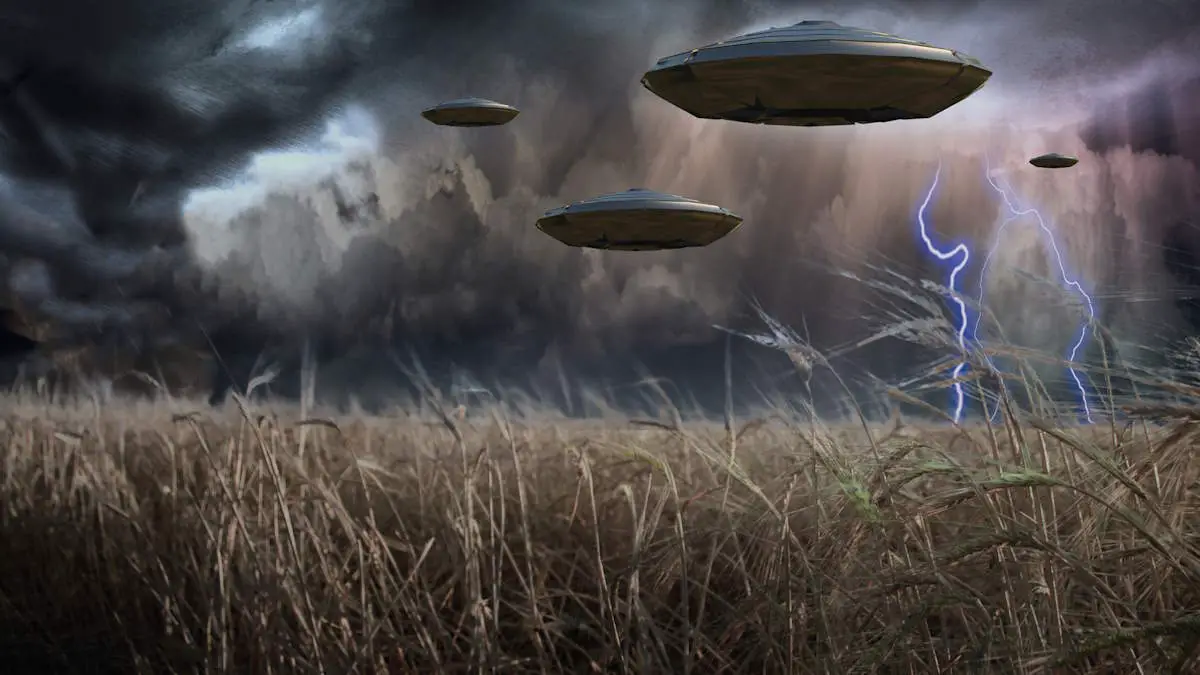The notion that intelligent extraterrestrial life might exist has always captured the human imagination. But what if they do exist, and what if they find us before we find them? The late physicist Stephen Hawking once expressed deep concern about this possibility, warning that giving aliens our cosmic address could bring death and ruin. But as we dive into the vast tapestry of human history and our growing understanding of our nature, we may find reasons to be optimistic rather than fearful.
Historical Perspective of Declining Violence
The evidence suggests that violence among humans is not increasing but rather declining. In his book “The Better Angels of Our Nature: Why Violence Has Declined,” Harvard social scientist Steven Pinker meticulously analyzes long-term trends that indicate a decline in violent deaths across the globe. Using historical records, scholars have found that homicide rates have plummeted in England by factors of 10, 50, and even 100. Similar patterns have been observed across Europe.
These findings extend beyond individual acts of violence to the broader context of war and conflict. Even in the murderous 20th century, about 0.7 percent of the global population died in wars. Including war-related deaths from disease, famine, and genocide, this figure reaches only 3 percent.
Applying the Trend of Declining Violence to Extraterrestrial Civilizations
Can we apply these findings to intelligent civilizations beyond our solar system? Jill Tarter, co-founder and former director of the Center for SETI Research, thinks so. In response to Hawking’s fears, Tarter argues that an alien civilization advanced enough to travel across star systems would likely have evolved beyond aggression.
She sees growing kindness and cooperation as natural evolutionary trends. If humanity can expect to be less warlike 10,000 years from now, Tarter suspects the same for other intelligent civilizations. The decline of violence in human history might be indicative of how intelligence and technological advancement align with peaceful coexistence rather than aggression.
Carl Sagan also believed that advanced civilizations might be peaceful because they would have overcome their self-destructive tendencies.
The Cautionary Note
This perspective does not dismiss the need for caution entirely. Tarter aligns with Hawking on one point: humanity should listen first before actively transmitting messages into space. The idea behind Active SETI, deliberately sending messages into space, should be considered carefully.
While she doesn’t foresee a visit from aliens spelling disaster, Tarter believes that in our current “youthful state as an emerging technology, we should listen, first.” This measured approach acknowledges the unknown without succumbing to fear and pessimism.
Even Carl Sagan, along with early SETI pioneer Philip Morrison, recommended that “…the newest children in a strange and uncertain cosmos [humanity] should listen quietly for a long time, patiently learning about the universe and comparing notes, before shouting into an unknown jungle that we do not understand.”, despite believing that “any civilization advanced enough for interstellar travel would be altruistic, not hostile”, as mentioned above.
![Should we fear aliens? Alien invasion [War of the Worlds]](https://cdn-0.ourplnt.com/wp-content/uploads/2023/08/alien-invasion-war-of-the-worlds-1024x1024.webp)
Cultural Evolution and Its Implications
The decline in violence is not merely a result of top-down state controls. Pinker explained a bottom-up civilizing process that began in the European Middle Ages and matured over time. This cultural shift from a readiness to take revenge to a readiness to control emotions led to a culture of dignity.
These cultural ideals gradually became ingrained in the social fabric and characterized daily human interaction. This shift is evidenced by the “10,000 acts of kindness” that go unreported, which bind us in benevolence and empathy.
This cultural evolution has significant implications when considering extraterrestrial intelligence. If our species has moved towards increased empathy and cooperation, it’s conceivable that other intelligent civilizations might follow a similar path. The readiness to control one’s emotions, to consider long-term consequences, and to value dignity could be universal traits linked to intelligence and societal advancement.
Conclusion
The fear of extraterrestrials, though understandable, may be misplaced. The arguments presented by Tarter, supported by the extensive research of Pinker, provide a compelling case that advanced alien civilizations would likely be more peaceful rather than hostile.
The decline in violence among humans over centuries reflects a broader trend toward kindness, empathy, and cooperation. This trend may not be confined to our planet but could be a universal phenomenon accompanying the growth of intelligence and technological advancement.
The cautionary stance regarding Active SETI is valid and well-considered. It acknowledges the vast unknown while holding a door open to a future where humanity might be mature enough to send messages into the cosmos.
Ultimately, our understanding of ourselves, our history, and our evolving nature provides hope rather than fear. The cosmic silence may yet be broken, and when it is, we should not be paralyzed by fear. Instead, we should embrace the opportunity, guided by our better angels, to connect with fellow travelers on the journey of intelligence and discovery.
In the words of Abraham Lincoln, the “mystic chords of memory” that bind us in shared experience and understanding may reach beyond our world. And just as we have found ways to live in greater harmony with one another, we may find common ground with intelligent life beyond our solar system. The decline of violence is not just a human story but a testament to the potential for peace, cooperation, and wisdom that may be a universal trait of intelligent beings.
Notes
- The mystic chords of memory, stretching from every battle-field, and patriot grave, to every living heart and hearth-stone, all over this broad land, will yet swell the chorus of the Union, when again touched, as surely they will be, by the better angels of our nature. [Abraham Lincoln]
Sources
- “The Decline of Violence: Be skeptical of claims that we live in an ever more dangerous world” on the Scientific American website
- “A world-leading scientist on the search for extraterrestrials pointed out a flaw in Stephen Hawking’s fear of finding intelligent aliens” on the Business Insider website
- “The Fermi Paradox” on the Wait But Why website
- Beyond “Fermi’s Paradox”: What is the “SETI-Paradox” Hypothesis? on the Universe Today website
- Header image source: Deposit Photos
- Budget of NASA, Year by Year [1980-1989] - June 10, 2024
- Budget of NASA, Year by Year [1970-1979] - June 10, 2024
- Budget of NASA, Year by Year [1958-2024] - June 10, 2024

